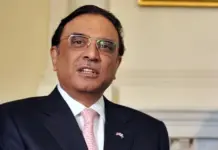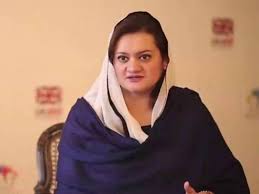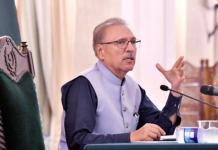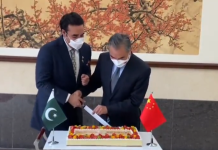KARACHI: While expressing its extreme displeasure over inaction on the part of the provincial government against those responsible for the shortage of safe drinking water and poor sanitation conditions, the Supreme Court directed the commission to continue its inquiry into the state’s failure to provide safe drinking water and sanitation facilities to resume its proceedings.
A three-judge bench headed by Justice Amir Hani Muslim was hearing the petition against the provincial authorities for failing to deliver potable water supply, sewerage and solid waste services across the province.
The bench also comprised of Justice Qazi Faez Isa and Faisal Arab directed the relevant authorities to submit progress reports before the commission. It also directed the district and sessions judges to submit reports on safe drinking water and sanitation facilities.
Justice Hani censured the authorities for failing to take steps for the provision of potable water and sanitation facilities in the light of findings of the commission’s report, observing that Justice Saleem Akhtar had taken suo motu notice of this situation in 1992. People from Karachi to Kashmore, Thatta and Badin were being made to drink unsafe water, Justice Hani noted. “Had the chief minister or any elected representative ever taken notice of the situation while seeking explanation from the relevant secretary, or taking action against him,” he asked.
He went on to observe that there was a moral deficit as no minister had bothered to tender a resignation after surfacing of such a report. “There is no sense of accountability in government.”
He further observed that the video, which was prepared by the petitioner regarding water shortage and poor sanitation in different cities, should have been shown to the elected representatives. Advocate General Zameer Ghumro told the judges that the video was shown to the CM and he was also briefed about the findings of the commission and ongoing proceedings.
At the outset, Sindh chief secretary Rizwan Memon and Ghumro sought time to appoint qualified and competent officers on the post of agriculture secretary and Karachi Water and Sewerage Board’s managing director on permanent basis. The court gave them time to make appointments and submit report till Thursday.
Ghumro informed that a committee headed by the local government secretary was constituted to prepare a detailed plan to implement the commission’s recommendations. It would submit its report within 15 days.
He told the judges that two more committees were also set up to make all filter and treatment plants operational, adding all the plants would be made operational within time frame of one month.
The judges expressed dissatisfaction over the steps taken so far in response to the commission report, saying the apex court had taken notice of non-supply of potable water and poor sanitation facilities 25 years back but the situation was still the same as no institution was discharging its functions properly.
They expressed extreme displeasure over the poor performance of the Karachi Water and Sewerage Board authorities and failure of the government in taking corrective measures to mitigate the situation in the light of the findings of the judicial commission appointed by the SC.
The judges noted that it was responsibility of the water utility to provide drinkable water and sanitation facilitations in the metropolis but, unfortunately, it was doing everything but its job.The court noted with serious concern that the government had failed to act against anyone in the light of the findings of the judicial commission, which had exposed all department’s performance.
Health secretary Dr Fazalullah Pechoho turned up before the bench and conceded that there was no proper mechanism for disposal of hospital waste. However, he sought time to prepare such a mechanism for its proper and safe disposal.
The bench directed the provincial health secretary to ensure the machinery for safe disposal of the hospital waste was made functional in all hospitals. It also sought details of the agreement signed by the Karachi Metropolitan Corporation with the Chinese company for solid waste management.















